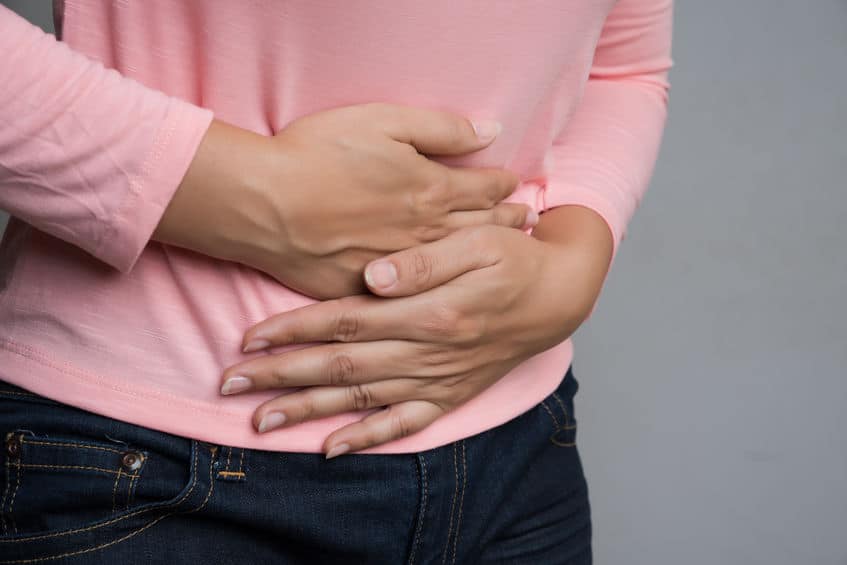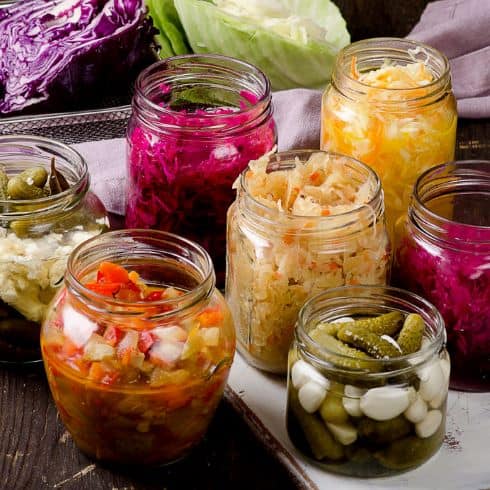Of all the possible side effects of gastric bypass surgery to stick around after 20 years, bloating is one of the worst. If I don’t pay close attention to what I eat, I end my day in pain, with a distended abdomen, cramping, and very unpleasant gas.

Bloating in a post gastric bypass person can be caused by several different things. In the beginning, the surgery itself is usually the cause. Dietary reasons, such as overeating or eating the wrong foods can be to blame, or there can be a medical cause, such as a blockage.
I discovered as the months and years progressed, that for me, bloating is usually caused by something I have eaten or how much I have eaten. I also find when I stop taking a probiotic and prebiotic regularly I suffer bloating more frequently. Both of these things I should be able to control. I just need to be vigilant and put into practice what I have learned.
What Causes Bloating?
Bloating is caused by an excessive build-up of solids, liquids, or gas in your digestive system.
Bloating is most often caused by your diet and some foods or ingredients you are intolerant to. Diets high in refined sugars and low in fiber can easily contribute to bloating and other digestive issues
People that have had a gastric bypass have reduced stomach acid, which reduces the ability to digest foods properly. It can leave you with undigested food particles that can irritate your small intestines and then in the large intestines cause gas and bloating,
Eating B and C vegetables greatly contribute to bloating. These are beans, broccoli, Brussels sprouts, cabbage, and cauliflower. Other culprits may include:
- rich and fatty foods
- fruits like apples, peaches, and pears
- lactose intolerance
- carbonated beverages
- overeating or eating too fast
- drinking alcohol
- sugar-free foods containing sorbitol, mannitol, and xylitol
- lack of exercise
Stress can also be a factor leading to bloating. I find when I am stressed, I don’t eat right, I eat too much, and I’m less active.
Why Probiotics Help
Research indicates that using twice a day probiotics can help those with symptoms such as gas and bloating.

The trillions of live organisms that live in the gut are known as the microbiome. What we eat and do on a daily basis can affect it.
Having a well-balanced microbiome is important in maintaining healthy digestive systems. The loss of beneficial bacteria, an abundance of harmful microbes, and a reduction in species diversity can cause an imbalance and may lead to bloating. Taking a probiotic supplement may help with rebalancing your body’s good bacteria.
I find I have a hard time remembering to take any pills on a regular basis. When I am vigilant in taking a probiotic I feel good, have more energy, and suffer from fewer digestive issues overall. When I stop taking it, it only takes a few weeks for me to begin having bloating and other issues again.
NOTE: Before taking any supplements please consult with your doctor.
If you also struggle with remembering to take any form of a pill, you can try adding natural probiotics in the form of fermented foods. According to a Harvard Health Publishing post, Not all fermented foods contain probiotics. Some foods undergo steps that remove the probiotics, as with beer or wine or make them inactive, like baking and canning. However, most fermented foods are probiotic foods as well.
Methods to Relieve Discomfort When Bloated
When I do suffer from bloating, and I do mean suffer, there are a few things I do to help relieve the pain.
The first thing I do is take an over-the-counter gas remedy. I’m cheap so I get the generic ones. I keep both pills and chewables on hand.
While waiting for the gas meds to take effect, I do some stretching. I find if I stand and stretch my arms over my head and lean my torso from side to side it will help with the discomfort. I also find that walking around will help the gas, liquid, or food, move through me a bit quicker and cause the episode to end sooner.
Ways to Prevent Bloating
The key to preventing bloating is understanding what causes it. Each cause may have a different solution.
Changing your diet may be the best option.
Many experts recommend a low FODMAP (fermentable oligosaccharides, disaccharides, monosaccharides, and polyols) diet that avoids fermentable, gas-producing food ingredients, such as:
- Oligosaccharides, which are found in wheat, onions, garlic, legumes, and beans
- Disaccharides, such as the lactose in milk, yogurt, and ice cream
- Monosaccharides, including fructose (a type of sugar found in honey), apples, and pears
- Polyols or sugar alcohols are found in foods such as apricots, nectarines, plums, and cauliflower, as well as many chewing gums and candies
As always, check with your doctor before making any major health-related decisions.
Some things to keep in mind:
- Try to eat smaller portions.
- Eat slowly and chew food thoroughly.
- Limit foods that are high in sugar and fat.
- Keep a food journal so you can figure out what foods cause you to bloat. The most common ones are, gluten, dairy, sugar, and eggs
- Avoid dehydration by drinking plenty of water throughout the day
- Go when you have to go. Putting off having a bowel movement can cause the fermentation of food.
- Take a good probiotic. Look for one that specifies strains that help with bloating.
- Feed your good bacteria by increasing soluble fiber.
- You can try cooking vegetables instead of eating them raw since cooking helps you digest fiber better,
Help us Earn by checking out one of our sponsors: Old Shcool, New Body I like them because their information is really helpful and I enjoy having hard copy info sometimes. Not everything needs to be online. They have great info on how eating right can help us feel and look better as we age. Eating right and not bloating go hand in hand.
Does Exercise Help?
Of course, the answer is yes. I’ve never read any study that said being sedentary was the best way to go about anything. But really, exercise may help reduce bloating by getting built-up gas to move through your digestive system.
Even light exercises like yoga, stretching, and walking can help your body move things along.
Most women as they get older or if they have had children will find they notice the abdominal distention that accompanies bloating more than they used to. This is due to the natural laxation of the abdominal wall, As I’ve aged, I’ve been subject to this most obvious sign of bloating myself. Exercises that strengthen the abdominal muscles can be beneficial.
Somewhat related is meditation. Many believe mind-over-body methods can help. I have not had experience with this, but I did read an interesting post from Bio K Plus called How Does Meditation Help Digestion, maybe you will find it interesting as well.
What Else Can Cause Bloating
In some cases, gastric bypass can cause bacteria to grow unchecked. This excess bacteria may eat the nutrients your body needs causing bloating, as well as, cramping, gas, and diarrhea.
In severe cases, small bowel bacterial overgrowth can hinder the body from absorbing nutrients correctly, leading to malnutrition and vitamin and electrolyte deficiencies, such as anemia. Antibiotics have been used to successfully treat SBBI.
Bloating can also be caused by irritable bowel syndrome, constipation, diarrhea, celiac disease, ovarian cancer, gastroesophageal reflux, pancreatitis, and a host of other medical conditions.
If you are concerned there may be something wrong or if unusual symptoms persist, be sure to talk to your doctor or healthcare provider. Never self-diagnose, always see a professional.
